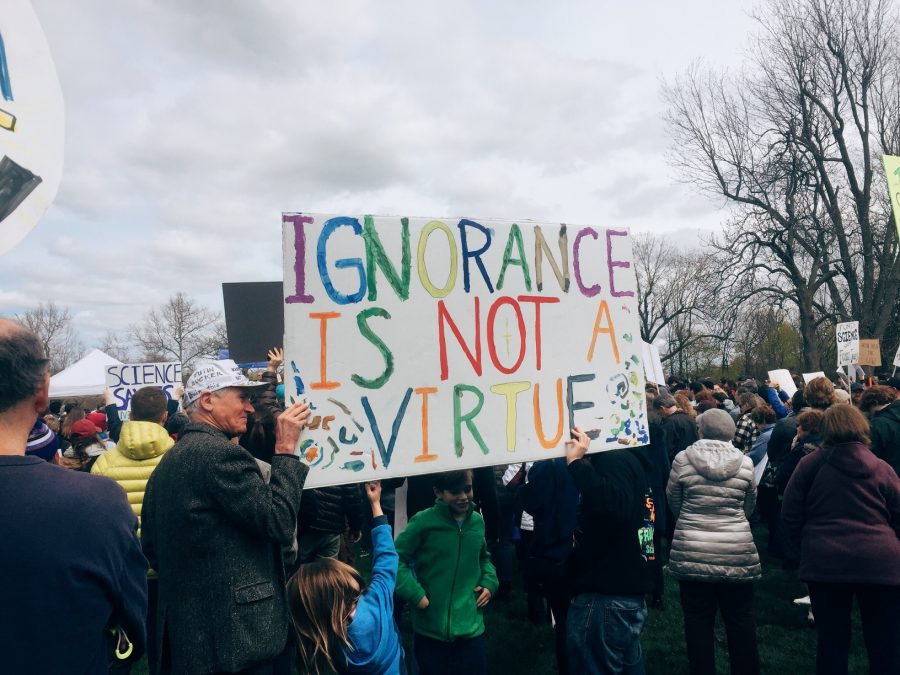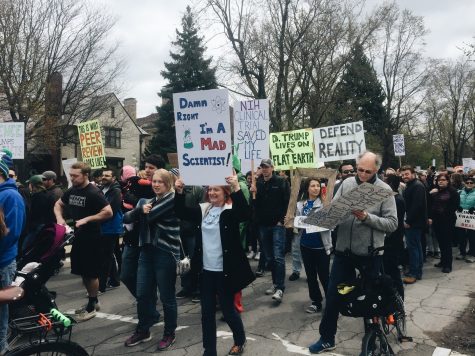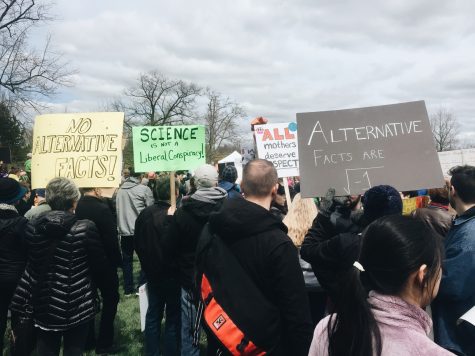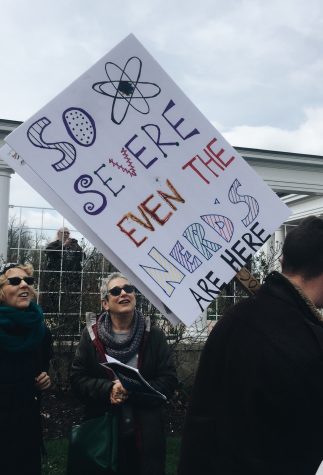Buffalo joins together to “Make America Think Again” at the March for Science
April 22, 2017
Thousands of science lovers came out in droves in cities all over the country to march for science, and Buffalo was no exception.
The city’s march took place today at Soldier’s Circle and ended with a rally in Delaware Park. The goal of the march, according to the Buffalo March for Science’s website, was to “unite as a diverse, nonpartisan group to call for science that upholds the common good, and for political leaders and policymakers to enact evidence-based policies in the public interest.”
Bringing the march to Buffalo was the brainchild of Alexandria Trujillo, a Ph.D. student at the University of Buffalo.
“Our goal was just to show the large amount of people who really care about having evidence-based policy, who want to fund science, protect the environment,” Trujillo said.
Trujillo came up with the idea in January when she saw that cities around the world were banding together to organize marches.
She started a Facebook group to find people to help her bring the march to Buffalo, and found around 20 people interested.
“I’m just a Ph.D. student at UB who really cares about science,” Trujillo said. “It was really cool to meet all these online strangers who had the same passions as me and just put on something like this.”
Trujillo and the other organizers plan to start a non-profit organization to hold events to connect the Buffalo science community. They also plan to hold a march every year.
Most of the marchers’ signs had messages about saving the environment, specific policies and anti-Trump and alternative facts messages.
Some were more personal.
Henry Withers, a Ph.D. student at Roswell Park, was holding a sign that said: “NIH clinical trial saved my life.”
In 2001, Withers was diagnosed with a bone marrow failure disease.
“I kind of ran out of options on treatments because my siblings weren’t matches for bone marrow transplant,” Withers said. “I was recommended to go to the NIH to be put on a clinical trial as an alternative therapy.”
The clinical trial was successful, and as Withers said: “The rest is history.” It really did save his life.”
NIH stands for National Institutes of Health, and is a publicly funded biomedical research facility.
“I’m out today because there is a push now to de-fund parts of NIH. Their funding is being dropped by about 18% in the proposed budget, which is about 5.8 million dollars,” Withers said, “which could affect clinical trials and patients’ lives who depend on new science to treat rare conditions and diseases.”
Jane Gilbride, an adjunct professor in the Buffalo State science department, marched to express her frustration with ocean pollution.
“This is a globe with plastics glued around the equator to represent the enormous problem with plastics in the ocean,” Gilbride said of her sign. “I am very concerned about the amount of plastics in our ocean, and we need science to help figure out the engineering behind cleaning the situation up. They predict that there is going to be more poundage of plastic surpassing ocean life shortly.”
“We have to get the message out that science is really important to all of our lives,” Gilbride said.
email: [email protected]








